
Being an NBA fan in Taiwan
NBA fans do not only exist in the US. In Taiwan, we see a huge fanbase digitally active on the NBA board on PTT, a local internet forum platform. In this article, I would like to focus on what it means to be an NBA fan in Taiwan. To be more specific, I will delve into the processes of englobalization and deglobalization, as proposed by Arjun Appadurai. Namely, I will examine Taiwanese NBA fans as a social group, for which the NBA board on PTT serves as one of the main centers of normativity.
What is PTT?
PTT, founded in 1995 by a group of students who were studying at National Taiwan University, is a non-profit internet forum based in Taiwan. Since its launch almost 25 years ago, the site hosts around 20,000 “boards” covering multiple topics ranging from politics to sports to relationship advice, and it has accumulated approximately 1.5 million registered users, with over 150,000 users active during peak hours (Liu, Chen, Hu, & Zhou, 2016).
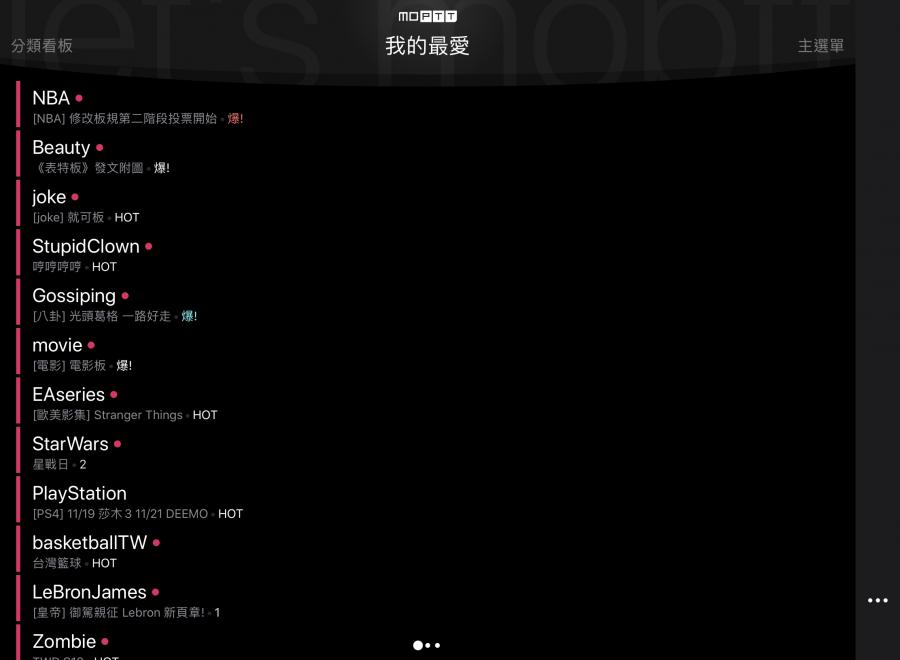
PTT's User Interface
NBA fans in Taiwan
Although the forum members could be viewed as a part of the global NBA community, when trying to identify how they construct their identity, it turns out that we cannot solely rely on what we know about the shared norms of NBA fans worldwide. Instead, as Arjun Appadurai (1996) has explained, global interactions in modern society constitute an operation of “cultural homogenization” and “cultural heterogenization” at the same time.
In other words, on the one hand, the board’s users watch the same NBA games as viewers in other countries do, and thus they possess some similar characteristics, or “emblematic features”, as Maly and Varis (2015) call them, when it comes to their identity as NBA fans. On the other hand, the fact that the Taiwanese forum users encounter NBA culture in a local setting allows them to develop features that cannot be found anywhere else. In this sense, as will be argued below, Taiwanese NBA fans could be described as a part of a micro-population, in which the NBA Board functions as one of the main centers of normativity on a local scale, whereas the American mass media have that role on a global scale.
Reaction to the LeBron incident
Case in point, in response to Houston Rockets executive Daryl Morey tweeting his support for the recent Hong Kong protest on October 4, 2019 (original tweet below), LeBron James stated in a press conference 11 days later that Morey was misinformed and should be more cautious when expressing his opinion on the matter.
"Fight for freedom, stand with Hong Kong."
The statement came off as hypocritical since it contradicted the athlete’s usual proactive stance when it comes to social injustice, which was felt, for instance, in his support of the Black Lives Matter movement. For instance, on July 8,2016, the athlete had tweeted a link to a TIME story about Philando Castile, a 32-year-old African American man who was shot on two days prior when he was pulled over by police in Falcon Heights, with the hashtag #ItNeedsToStop and #BlackLivesMatter (see James’ tweet). Consequently, the public has criticized him for seemingly having such double standards out of supposed corporate greed owed to the existence of an enormous market and fanbase in China. The fight in Hong Kong is also about human rights and social justice, so why should it be any different?
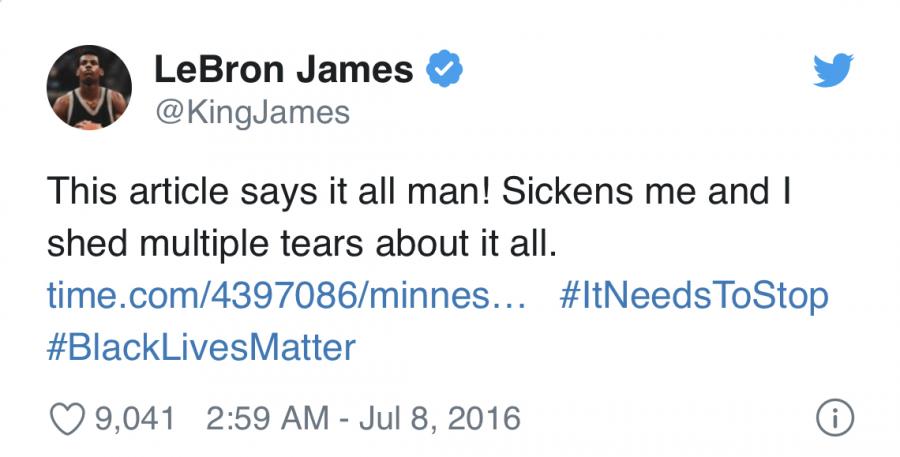
“...Sickens me and I shed multiple tears about it all...”
Members of the NBA board have likewise expressed their criticisms through numerous posts and replies. For Taiwanese people, which most of the members are, the protest has been perhaps even more of an intimate issue not only due to the country’s vicinity to Hong Kong, but also due to the shared sentiment of opposition felt against the communist China regime. To express their dissatisfaction towards James’ comments, members began to spread memes such as “Mao Lebron”, which originated on Reddit and features James’ face photoshopped onto the portrait of Mao Zedong (see this post). Other members photoshopped pictures of James falling on one knee before the national flag of China, pledging allegiance to the country (see this post).
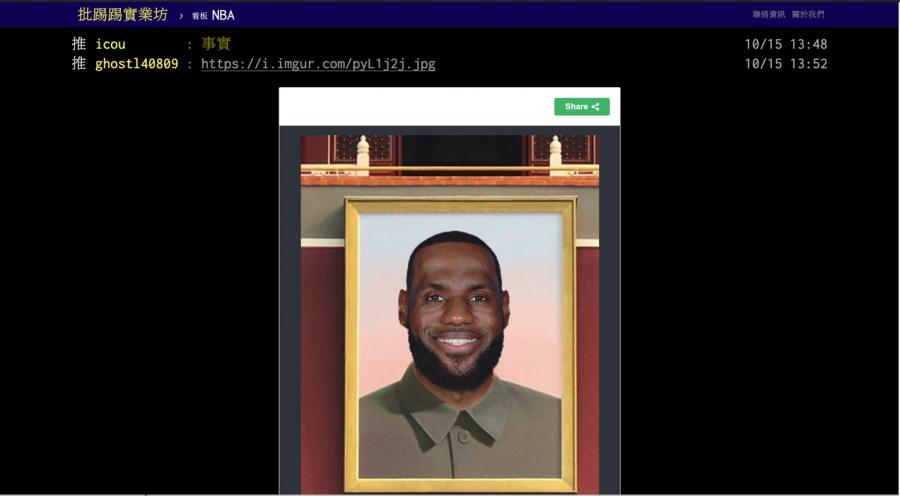
Mao Lebron meme on the NBA Board
Additionally, during the incident, members often used the phrase “跪舔” (kneeling and licking) to refer to James’ actions (see screenshot), implying that he is a “commie licker” that has acted against his previous statements concerning freedom of expression (see also James’ tweet below).
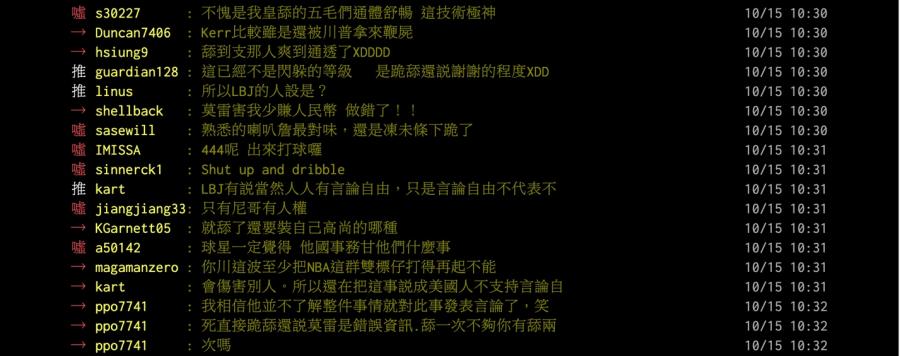
”跪舔“ (kneeling and licking) comments referring to James' actions
As becomes clear, the circulation of James’ statement involves the process of englobalization and deglobalization, as it was first covered by the American media, thus spread globaly, and then discussed on the NBA board, where people reacted to it locally. By encountering the news on the board, Taiwanese NBA fans are able to form their own opinions and react to the incident based on their identities both as NBA fans, and more importantly, as citizens of the country.
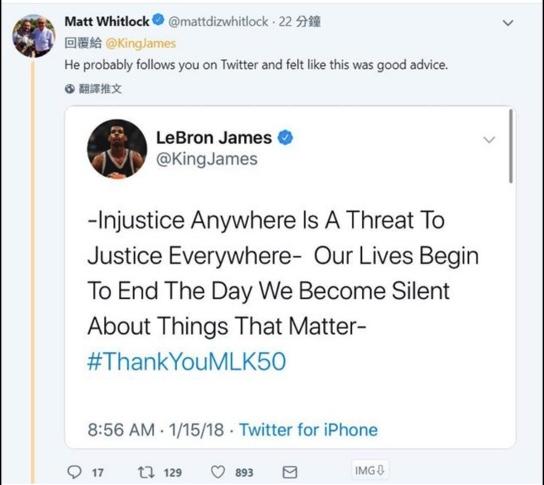
“... Our Lives Begin To End The Day We Become Silent About Things That Matter”
The nicknames
For NBA fans in Taiwan to function as a deglobalized micro-population in which the NBA board serves as a center of normativity, specialized languages would have to be formed so as to provide bases for their discussions. Also, conversely, these fans would have to acquire sufficient knowledge in these languages, or they would not be able to fully understand, and hence could not actively participate in discussions. Just as Becker (1961) has suggested in his work Outsiders, in order to become a member of any given social group, one not only has to recognize specific norms but also master the relevant terminologies. When it comes to the NBA board, we find that one of the more fascinating aspects of terminology are the nicknames given to the athletes.
Let’s zoom in on the case of Dwight Howard, who was given multiple nicknames for different periods of his professional career. Starting from the beginning of his career when he was drafted by and spent 8 years in the Orlando Magic, he was then known as “魔獸”, or the “magical beast”, which refered not only to the name of his team at the time but also to his dominance under the basket. Things started to take a turn for the worse, however, when he was traded to the Los Angeles Lakers in the 2012-2013 NBA season. Experiencing massive scrutiny under the scope of the LA media and also suffering from a injured shoulder, the athlete did not perform as expected. Accordingly, the board users came up with a new nickname for the player, calling him “草莓獸“, or the “strawberry beast” due to the connotation between the fruit and weakness in Mandarin Chinese.
Taking as an example this post from July 8, 2019, which is about the rumor of Howard’s intention to join the Los Angeles Clippers before the start of the 2019-2020 season, one can see the two aforementioned nicknames being used by the board’s users in the comment section. In the screenshot of said post seen below, gundam01 comments, “The magical beast is doing alright. It is just that for the past few years he has usually been traded at the end of seasons.” Kuroxxoo holds a different opinion however, expressing his concern over Howard joining the Clippers: “Please do not do that, the strawberry beast.”

gundam01 & kuroxxoo's replies
After a few seasons of roaming from one team to another due to his unpleasant reputation, in the 2019-2020 season, the athlete has come full circle returning to the Lakers, this time led by LeBron James and Anthony Davis. To the surprise of many, the player has not only been performing well on the court, but he has also had a positive presence when it comes to media coverage since the start of the season. With this turn of events, members have started to call him “聖光獸“, or the “sacred, or holy, beast”. Examining this post, in which Howard’s post-game interview in the locker room was reported (see original tweet “...let love lead the way and great things happen”), one can observe an overall positive response, with forum members using the nickname “the holy beast” and comparing the player to monks who have attained enlightenment ("豁華大師").

The "聖光獸“ & "豁華大師“ comments
What is interesting is that not only are the nicknames updated, but they coexist instead of replacing one another. Further, choosing which nicknames to use very much depends on the context: if one has the urge to express negative opinions towards a player, he/she would use the nickname that has a negative connotation; if one wants to assert a neutral/positive stance, he/she would select the nickname that is accordingly neutral or positive.
ALT
The NBA board is not the only center of normativity for NBA fans in Taiwan. In this section, I will examine the conflict between the NBA board and another center of normativity, the ALT community. To offer some context to the situation, ALT, founded in 2012, used to be a non-profit fanpage composing comic strips about the NBA daily; it was not until 2018 that the founder of the page decided to tread into the area of selling merchandise and clothes.
ALT in 2019
Later on, the founder of ALT also created a Facebook group, in which supporters of the brand could discuss NBA-related topics.
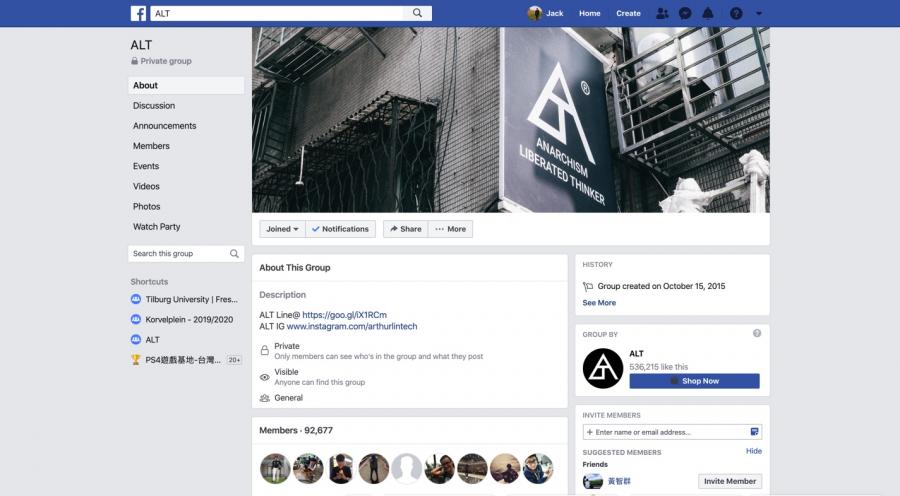
ALT's Facebook group
Nonetheless, what is problematic is that the brand often copies jokes originating on the NBA board. One such incident occurred in 2016. Under a post noting Lebron James’ accolades so far, which have been filled with runner-ups instead of championship titles, kixer2005 came up with the phrase “詹軍亞“.

Origin of the 詹軍亞 phrase (kixer2005)
To explain the origin of the idiom, first one has to break it down into its three Chinese characters. The first character, “詹“, is also the first character for the Chinese translation of James (詹姆斯); the second character, “軍“, would be the suffix for a title or an award (冠軍 would be the champion, and 亞軍 stands for second place); the final character, “亞”, means second (sub-). The entire phrase combined then, would mean “James the Runner-up”. In addition, the phrase is a reference to an old instant noodle TV commercial aired in Taiwan in which there was a character named “張君雅“, whose name's pronunciation is quite similar to the coined phrase “詹軍亞“.
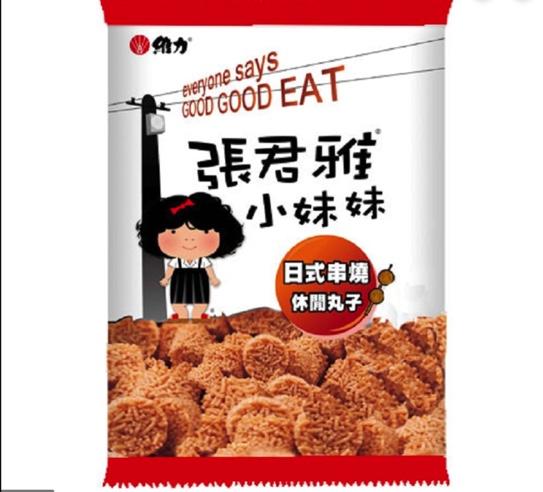
”張君雅“
Just when kixer2005 perhaps was still quite satisfied with producing a funny expression that was approved by his peers, a day after its creation, it was immediately “borrowed” by ALT in his comic strip, without any credit given to the source.
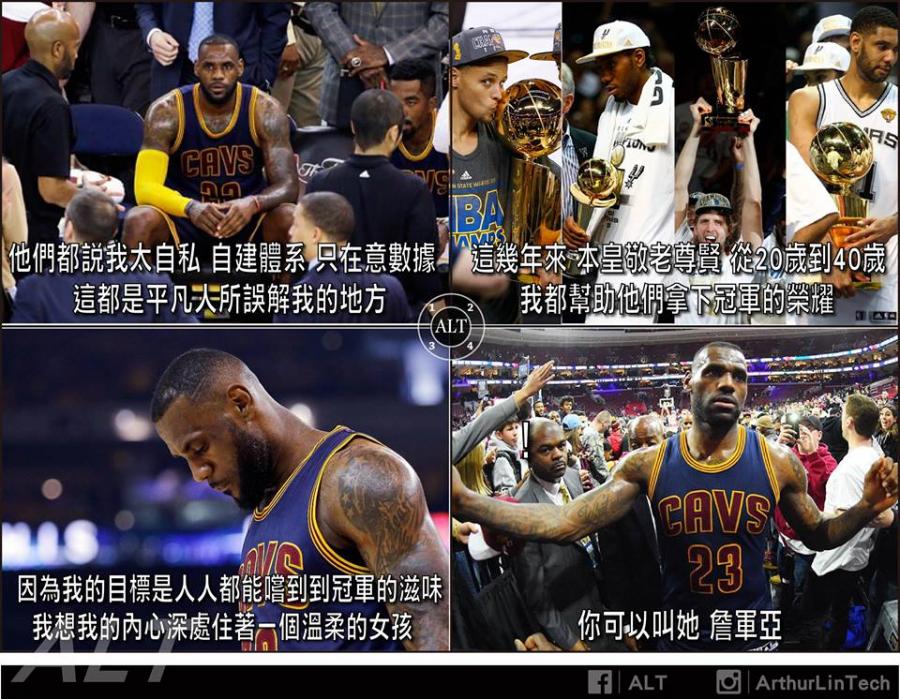
ALT "borrowing" the 詹軍亞 phrase
Due to this incident and many others that were on the brink of plagiarism, the consensus on the NBA board regarding ALT, as seen in the screenshots below, has been a negative one, with users of the board referring to ALT as both a corrupted and disgusting brand, and their customers as “trash” or “little brats” ("垃圾/屁孩") who don't know any better.
"Trash community. Boring as hell."
"ALT's pathetic. Only little brats love it."
ALT is not short of supporters however, as the Facebook group of the brand counts 92,677 members as of January 2020. Unsurprisingly, there has been ongoing conflict between the two sides. Let us turn to a post in ALT’s Facebook group. In the post, the author reacts to the NBA board’s reaction to Kevin Durant’s Achilles injury in Game 5 of the 2019 NBA Finals.
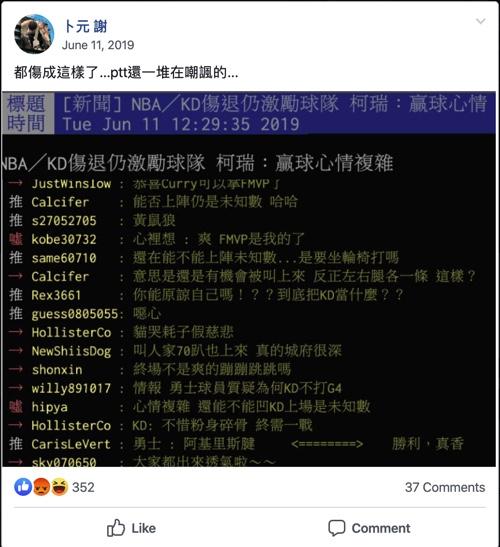
謝元卜's post in ALT's Facebook group
Apparently, the board’s reaction to the injury was to make fun of Stephen Curry, who was Durant’s teammate and second-in-command, by replying that he finally has a chance to win the Finals MVP (Most Valuable Player), which Curry has never won before despite having won multiple championships before 2019 (see JustWinslow & kobe30732's comments). Turning to the Facebook post, the author expresses his contempt towards the NBA board’s indifference and jeering of such a serious injury. The Facebook group's comment section shares similar sentiments as well, saying that the NBA Board is a center of negativity (負能量中心) and calling the members of the board sociopaths (反社會人格), or nerds (宅男) who only know how to type toxic comments on the internet.

NBA Board vs. the ALT community (see replies "負能量中心" & "反社會人格")
Such conflict is very much in line with what Howard Becker has discussed in the early chapters of Outsiders, in which he details the process of becoming an outsider. An outsider, as defined by Becker, is an individual who is deemed not trustworthy to “live by the rules agreed on by the group”; yet Becker also notes that the individual so judged may not acknowledge the verdict, either because they simply do not accept the rules or because they believe the judges to not have enough power or credibility to make such a decision, thus regarding the group as “outsiders” as well (Becker, 1963, p. 1). In the context of the dispute between NBA board members and ALT customers, the former view the latter as outsiders, yet the opposite also remains true in that ALT customers do not believe in the rules set by the members of the board, and thus perceive the board users as outsiders.

"They are nerds who did not receive warmth in real life"
Conclusion
This article aimed to lay out a thorough examination of a niched and localized micro-population, Taiwanese NBA fans. As demonstrated through the LeBron incident, these fans could be considered as a deglobalized social group in which members consume media originating in American media sites, which then spread to the main local center of normativity, i.e., the NBA board on PTT. Further, the group’s reaction to the controversy serves as solid proof of them being active citizens of Taiwan who refuse to blindly support an athlete and passionately call out his supposed hypocrisy and ignorance towards the Hong Kong protest, which occupies an intimate position in the heart of Taiwanese people as their battle against the Chinese government is very much in line with the country’s advocacy of democracy and its ongoing struggle to escape the grip of the communist regime.
In addition, we have looked at the nicknames given to athletes since these vocabulary items offer groundworks on which deglobalized practices and discussions among Taiwanese NBA fans are formulated. By examining the case of Dwight Howard, we found that not only are such nicknames constantly updated, but fans utilize different nicknames of the same athlete depending on their intentions.
Last but not least, we investigated a rather peculiar force of friction between the NBA board and another center of normativity for Taiwanese NBA fans, that of the ALT community. A case for each side of the argument was presented. On the side of the board, there was the 詹軍亞 incident, in which the members were furious that jokes from the board were copied by ALT comic strips. On the side of ALT, by looking at a post from the brand's Facebook group, we discovered that supporters of the brand viewed the board as an unhealthy “center of negativity” (負能量中心).
In the end, it appears that being an NBA fan in Taiwan is a matter deeply entrenched in the workings of globalization.
References
Appadurai, A. (1996). Modernity at large: Cultural dimensions of globalization. Minneapolis, MN : Univeristy of Minnesota Press.
boyd, d. (2015). It's complicated: The social lives of networked teens. New Haven, CT: Yale University Press
Becker, H. (1963). Outsiders. Studies in the sociology of deviance. Free Press.
Liu, Y., Chen, B., Hu, S., & Zhou, Y. (2016, February 1). Jiedu PTT: Taiwan zuiyou yingxiangli de shequn. [Understanding PTT, Taiwan's most influential social media]. BusinessNext.
Maly, I & Varis, P. (2016). The 21st century hipster: on micro-populations in times of superdiversity. European Journal of Cultural Studies,1-17